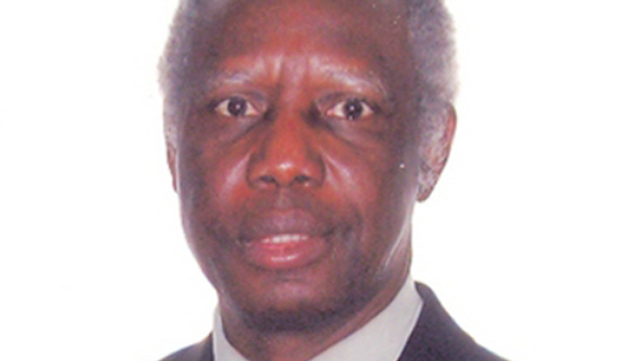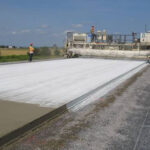
By Yusuf Aliu
Nigeria, the most populous country in Africa, is currently grappling with a severe crisis of starvation, hunger, and economic hardship. The urgency to address these issues cannot be overstated, as the consequences of inaction are dire. Hunger not only affects individuals’ health and well-being but also threatens the nation’s stability and future prosperity.
The pain and suffering caused by hunger are pervasive, impacting millions of Nigerians daily. Malnutrition, stunted growth in children, and increased vulnerability to diseases are just a few of the immediate effects. The psychological toll is equally devastating, as families struggle to make ends meet, often sacrificing basic needs to put food on the table. Hunger erodes human dignity, undermines community cohesion, and perpetuates a cycle of poverty that is difficult to break.
Addressing this crisis is crucial for Nigeria’s peace and stability. When people are hungry and desperate, social unrest becomes almost inevitable. History has shown that hunger can ignite uprisings and fuel insecurity, further destabilizing already fragile economies.
For Nigeria, a country with a history of political and ethnic tensions, the stakes are even higher. Prolonged hunger can exacerbate existing conflicts, trigger new ones, and hinder efforts to achieve lasting peace. The economic challenges facing Nigeria are multifaceted, but solutions are within reach. One key approach is to boost agricultural productivity.
Nigeria has vast arable land and a favourable climate for farming, yet many farmers lack access to modern tools, seeds, and fertilisers. Investing in agricultural infrastructure and providing training and resources to farmers can significantly increase food production. Additionally, adopting climate-smart agricultural practices can help farmers adapt to changing environmental conditions, ensuring more resilient and sustainable food systems.
Improving the food distribution network is essential
Too often, food rots in fields or fails to reach markets due to poor infrastructure and logistics. Building better roads, storage facilities, and transportation systems can ensure that food gets to where it is needed most, reducing waste and improving availability. Strengthening local markets and enhancing supply chains can also help stabilize food prices and make nutritious food more accessible to all Nigerians.
President Bola Tinubu’s administration has recognised the gravity of the situation and is taking steps to address it. One of the central elements of his economic policy is the use of food assistance to tackle humanitarian crises and emergencies. This approach aims to provide immediate relief to those in dire need while also laying the groundwork for long-term recovery and stability.
Food assistance programs can bridge the gap between short-term emergency relief and long-term development, creating a continuum of support that addresses both immediate and underlying causes of hunger. Food assistance programs can take many forms, from direct food distribution to cash transfers that allow people to buy food. These programmes not only alleviate hunger but also stimulate local economies by increasing demand for locally produced food.
By purchasing food from local farmers, these programs create a virtuous cycle that supports agricultural production and boosts incomes. Integrating nutrition education and support services into food assistance programs can further enhance their impact, promoting healthier diets and better nutritional outcomes. Another critical aspect of President Tinubu’s policy is promoting economic diversification. For too long, Nigeria’s economy has been overly dependent on oil.
Diversifying into other sectors, such as agriculture, manufacturing, and services, can create jobs and reduce the vulnerability of the economy to global oil price fluctuations.
Developing value chains and adding value to agricultural products through processing and packaging can increase income opportunities and enhance economic resilience.
In addition to diversification, fostering entrepreneurship is vital. Small and medium-sized enterprises (SMEs) are the backbone of many economies and can be a significant source of job creation.
Providing access to finance, reducing bureaucratic hurdles, and offering training and support to budding entrepreneurs can unleash Nigeria’s entrepreneurial potential. Encouraging innovation and supporting start-ups can drive economic growth, create employment opportunities, and stimulate local development.
Education and skills development are also critical components of the solution
A well-educated and skilled workforce is essential for economic growth and development. Investing in education, particularly in rural areas, can equip people with the knowledge and skills needed to participate in and contribute to the economy. Enhancing vocational training and lifelong learning opportunities can help workers adapt to changing labour market demands and improve their livelihoods.
Furthermore, addressing corruption is paramount. Corruption siphons off resources that could be used to alleviate hunger and improve economic conditions. President Tinubu’s administration has pledged to tackle corruption head-on, ensuring that resources are used efficiently and effectively to benefit all Nigerians. Strengthening institutions, enhancing transparency, and promoting accountability are critical steps toward building a more just and equitable society.
Social safety nets are another vital component of the strategy to combat hunger and economic hardship. Programmes such as conditional cash transfers, public works, and social insurance can provide a buffer for the most vulnerable populations, helping them to weather economic shocks and rebuild their lives. Expanding social protection coverage and improving the targeting of benefits can enhance the effectiveness of these programs and ensure that no one is left behind.
To implement these policies effectively, collaboration is key. The government must work closely with international organisations, non-governmental organisations, the private sector, and local communities. By pooling resources and expertise, these stakeholders can create a comprehensive and coordinated response to the crisis. Partnerships with regional bodies and participation in global initiatives can also enhance Nigeria’s capacity to address food insecurity and achieve sustainable development.
Combating starvation, hunger, and economic hardship in Nigeria is an urgent priority. The pathway to peace, stability, and prosperity lies in addressing these issues head-on. President Bola Tinubu’s economic policies, focusing on food assistance, economic diversification, entrepreneurship, education, anti-corruption measures, and social safety nets, offer a comprehensive blueprint for tackling the crisis.
With concerted effort and collaboration, Nigeria can overcome these challenges and build a brighter, more prosperous future for all its citizens. Ensuring that every Nigerian has access to adequate food and opportunities for a better life is not only a moral imperative but also a strategic investment in the nation’s peace and stability.
Yusuf Aliu, PhD, (CMGR, FCMI) writes from France, via: draliu5th@gmail.com













